This February, we honor and celebrate several Black musicians whose dedication to their craft has shaped the way we make and enjoy music of all sorts. Learn about five of these groundbreaking performers below.
Anthony McGill
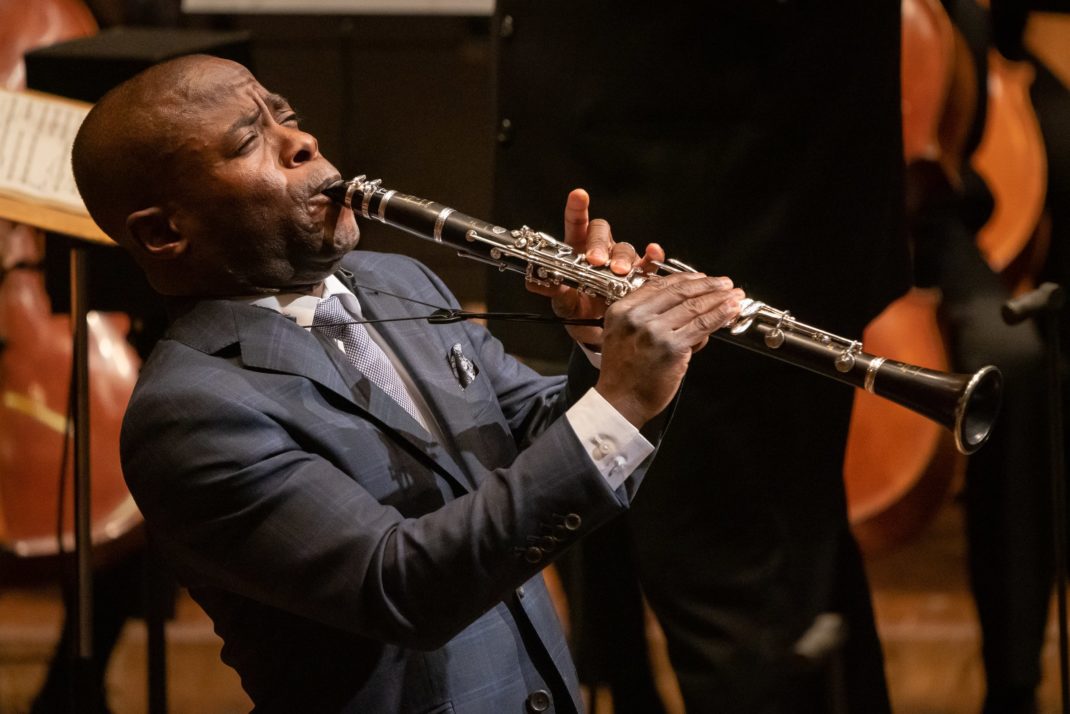
Clarinetist and Chicago native Anthony McGill became the first Black Principal player for the New York Philharmonic in 2014. In May of 2020, McGill posted a moving solo performance of “America the Beautiful” to his Facebook page in the aftermath of George Floyd’s murder. If you listen closely, you’ll notice it sounds a bit different from typical performances of the piece. As he was practicing, McGill said “I might have played a wrong note or something. I realized I could turn it into a minor key, just by playing a couple different notes.” The outcome? A stirring, emotional performance that reminds us how music can be used to express some of our deepest, most difficult emotions. “We shouldn’t pretend like life and the world is always major because we want it to be. Sometimes life is minor.” Watch McGill’s poignant performance here.
Marian Anderson
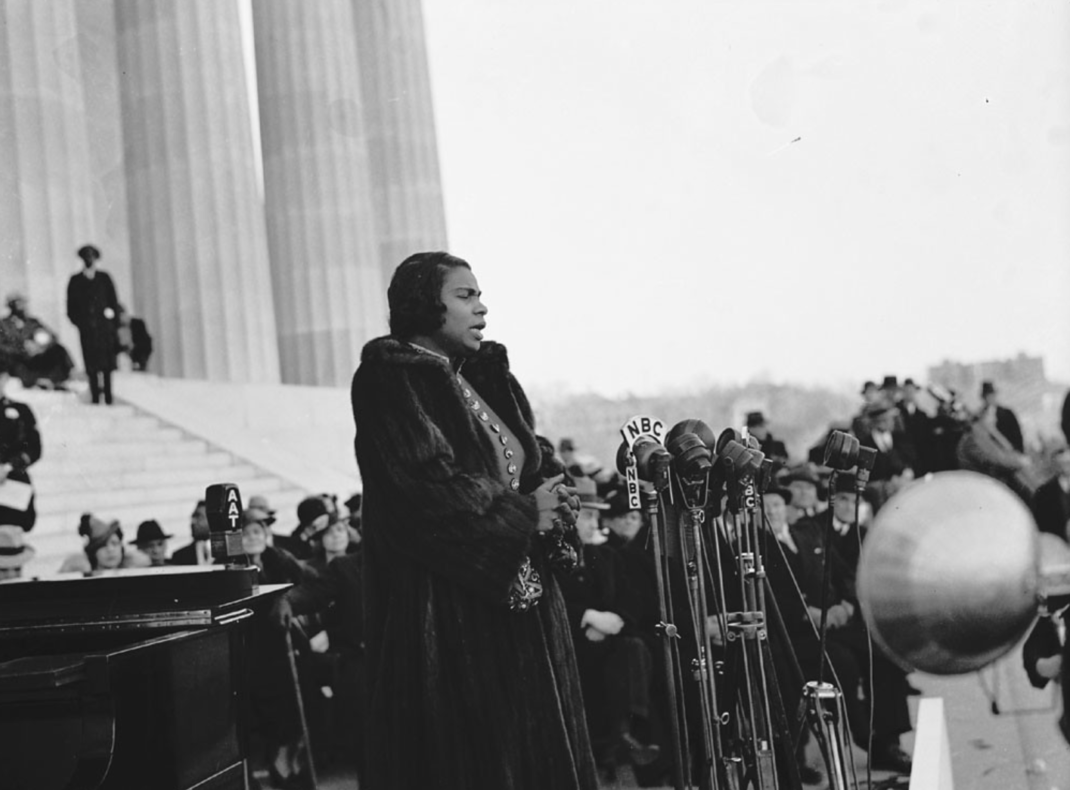
Legendary contralto Marian Anderson broke barriers when she became the first Black woman to perform at the Metropolitan Opera in 1955, though her career began long before that. Anderson grew up in Philadelphia and began singing in the church choir at age six. Soon, she was performing onstage with the New York Philharmonic and at Carnegie Hall. In 1939, Anderson faced discrimination when she was banned from performing at a Daughters of the American Revolution concert. Outraged, First Lady Eleanor Roosevelt resigned from the organization and came to Anderson’s defense. She wasn’t the only one–people all over the country, including the press, condemned the DAR’s actions. To show their support, President Roosevelt and NAACP President Walter White instead invited Anderson to perform on Easter Sunday on the steps of the Lincoln Memorial. The performance drew a crowd of 75,000 and millions of radio listeners. Throughout her life, Anderson was awarded a number of prestigious honors, including the Congressional Gold Medal and the Kennedy Center Honors. Her memory lives on as a groundbreaking musician and civil rights advocate. Watch Anderson’s breathtaking Lincoln Memorial performance here.
Richard Antoine White
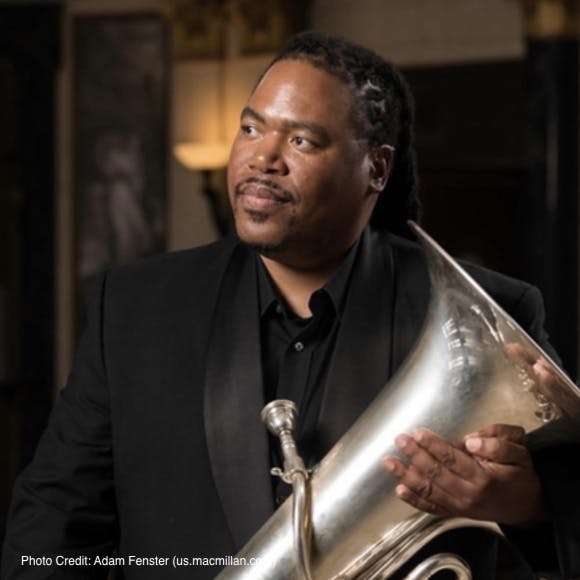
Richard Antoine White overcame incredible odds to become the classical musician he is today. The Principal Tubist for both the Santa Fe Symphony and New Mexico Philharmonic was homeless until the age of 4. As a young child, he spent many nights sleeping on cardboard, walking through snowy Baltimore streets without shoes, and sheltering alone in abandoned buildings. At age four, White was adopted by loving and supportive parents. In elementary school, he picked up the trumpet, and in middle school switched to the tuba. Soon, he was admitted to the Baltimore School for the Arts and, after graduating, Johns Hopkins University’s Peabody Institute. His performances on tuba span from classical to hip-hop. Watch White on The Daily Show beatbox on a tuba!
Susana Baca
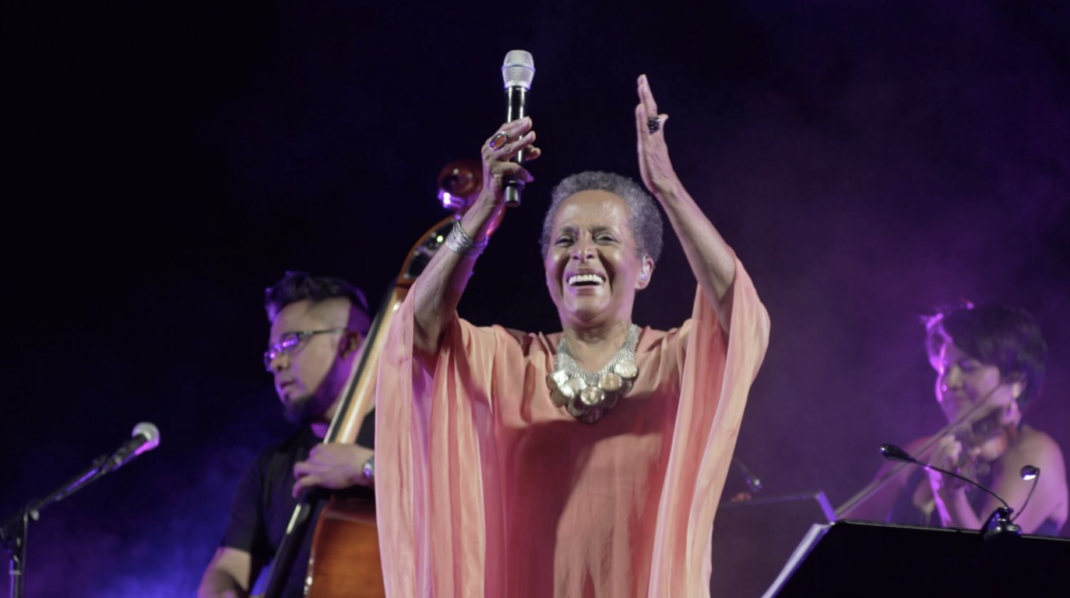
Afro-Peruvian singer-songwriter Susana Baca has played a key role in the revival of Peru’s indigenous folk music. The three-time Latin Grammy Award Winner worked hard to gain recognition and respect for the genre. Many of her songs feature indigenous Peruvian instruments like the cajón (wooden box), the udu (clay pot), quijada (jawbone of a donkey), and cheko (a dried gourd). Baca’s music has seen popularity outside of Peru; her song “Maria Lando” gained worldwide fame in 1995. She has performed across the U.S. as well, including at Chicago’s Old Town School of Folk Music. Baca’s dedication to preserving Afro-Peruvian music and indigenous culture earned her a position as Minister of Culture, becoming Peru’s first Afro-Peruvian minister and the first musician to hold the title. Watch Susana Baca perform “Maria Lando” here.
Trombone Shorty
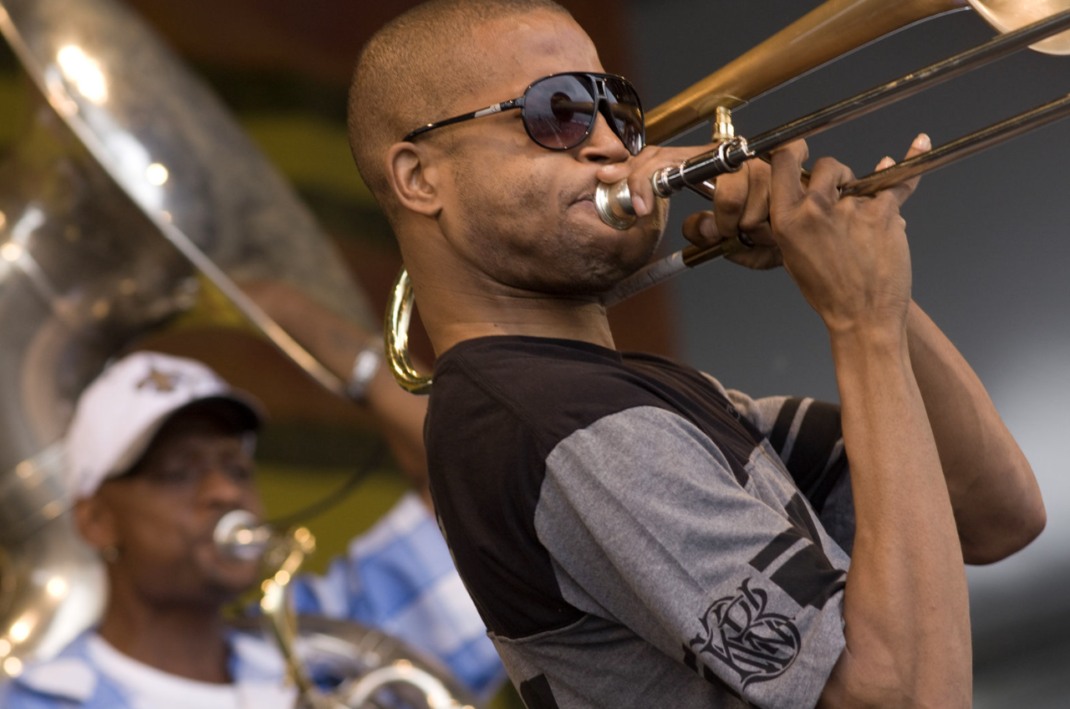
Troy Andrews, better known as Trombone Shorty, is one of today’s most talented trombonists. He grew up in New Orleans, the Birthplace of Jazz, and began playing the trombone at just 4 years old. Trombone Shorty has played at world-renowned music festivals like Voodoo Festival and Jazzfest. In fact, he was just five years old when he first performed at Jazzfest! Some musicians who have joined him on stage include Janelle Monáe, Gary Clark Jr., and Earth, Wind & Fire. He even performed twice for President Obama. And that funny sound the grown-ups make in the Peanuts movie? That’s Trombone Shorty! Watch Trombone Shorty’s 2012 White House performance here.
The People’s Music School was founded on the principle that all people deserve access to high quality music education so that the future of music can be diverse and inclusive. We celebrate Black musicians not just one month out of the year, but each and every day.
Learn more about these inspiring musicians at the links below.
Marian Anderson, Musical Icon, PBS.org
Clarinetist Anthony McGill Kneels, Pleads And Plays For Justice, NPR
Listen: Tubist Richard Antoine White’s Unlikely Path To The Stage, NPR
Susana Baca: the singer who became Peru’s first black cabinet minister, The Guardian
